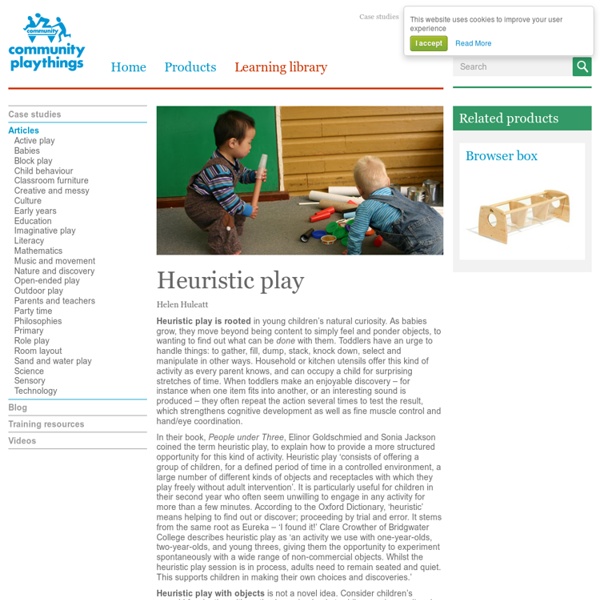How Children Learn to Talk
Have you ever wondered how children learn to talk? Many people, when asked that question, respond that they do it by imitating. This is at least partially true. Without imitation, we couldn't account for the fact that children in Texas usually learn Texan English, children in Paris usually learn Parisian French, and not vice versa. But imitation as an answer doesn't take us very far.
6 Types of Play: How Children's Play Becomes More Social
Play is a serious business. The pioneering developmental psychologist Lev Vygotsky thought that, in the preschool years, play is the leading source of development. Through play children learn and practice many basic social skills. They develop a sense of self, learn to interact with other children, how to make friends, how to lie and how to role-play. The classic study of how play develops in children was carried out by Mildred Parten in the late 1920s at the Institute of Child Development in Minnesota. She closely observed children between the ages of 2 and 5 years and categorised the types of play.
How young children learn English through play
As we release Learning Time with Timmy – our first app for early-years learners of English – Danitza Villarroel, a teacher on our Learning Time with Shaun and Timmy course in Chile, explains the importance of learning through play, and offers a few tips for teachers new to this age group. Teaching English to pre-school children can be daunting for teachers new to this age group. Young children have shorter attention spans than older children and adults, and they're still learning their mother tongue. But teaching these learners can be enormously rewarding once you've taken a few basic principles on board.
Getting the right balance between adult-led and child-initiated learning
As an early years practitioner you will know the importance of creating the right balance between adult-led and child-initiated learning. Help all children learn and develop with this guide. Adult-led activities are based on our own professional understanding of what we should teach young children and what experiences they should have. Through adult-led activities we can introduce children to new ideas, provide opportunities for them to develop their skills and ensure that they experience all areas of learning in the Early Years Foundation Stage (EYFS).
Whole Child Development Is Undervalued
The question is how to make such an approach both systemic and sustainable. Whole Person Socio-emotional, physical, creative, and cognitive capacities are deeply intertwined and equally important in ensuring a child's wellbeing, learning, and growth. (That shouldn't be a surprise to anyone studying or supporting children's learning.)
A few more myths about speakers of multiple languages
Does multilingualism cause language delays and identity problems? The British Council's Nayr Ibrahim busts a few more myths about speakers of multiple languages. Myth: Multilingualism causes language delay Raising children bilingually is sometimes believed to cause language delay.
The cognitive benefits of play: Effects on the learning brain
© 2008 - 2014, Gwen Dewar, Ph.D., all rights reserved Science supports many of our intuitions about the benefits of play. Playful behavior appears to have positive effects on the brain and on a child’s ability to learn.
Learning Time with Timmy - 1st words in English
Discover new words with Timmy and his friends! Developed in partnership with Aardman Animations, Learning Time with Timmy helps children aged 6 and younger learn new words in English. Children can play three exciting games and follow the instructions to place toys and classroom objects in a box, pop balloons to learn numbers, colours and shapes and sweep away leaves and snow to find food and objects hidden beneath. Features: Learn over 60 English words including numbers, colours, shapes, food, animals, classroom objects and toys Practise listening and hear the Timmy narrator say the words aloud Play exciting games that get more challenging as you get smarter Collect stickers and videos as you progress in the app



